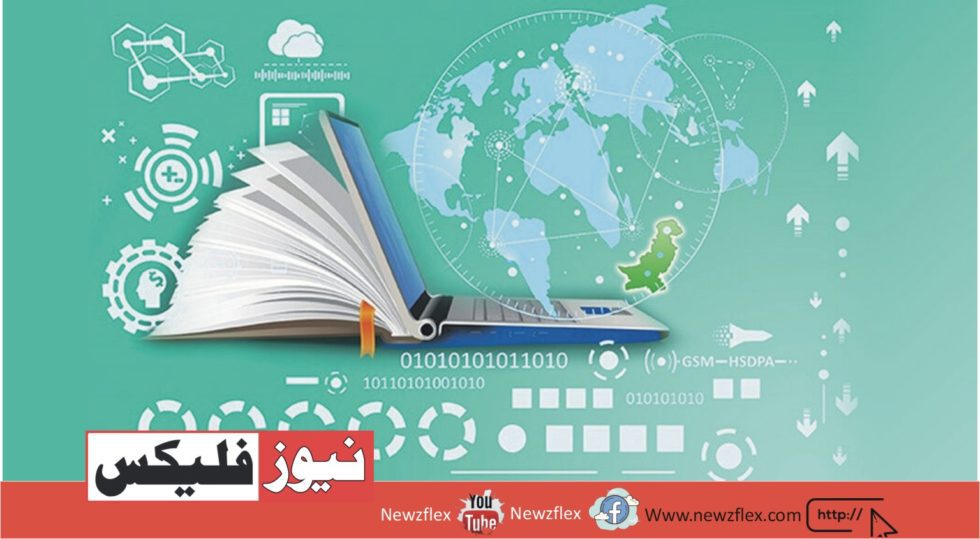
Pakistan’s Educational Future: Choosing Digital Transformation
There has been a global transformation in how we approach education in recent years. The fast advancement of technology and more accessible access to the internet have started to transform the traditional classroom. Pakistan, with its varied culture and lengthy history, is facing new chances for employment as well as challenges as a result of this change.
DIGITIVE TRANSFORMATION: WHAT IS IT?
Digital transformation is how an organisation adopts and uses digital technology to create new or alter existing products, services, and operations by transforming business processes into digital formats.
Digital Education’s Necessity
Pakistan, home to over 220 million people, has a sizable young population. Over 22 million children in Pakistan do not attend school, according to UNICEF. This startling figure emphasises how urgent it is to look for creative ways to solve problems in education.
Possible Difficulties
Even though the future seems promising, there are obstacles to a digitalized educational system. These could include the resistance to change held by traditionalists, worries that the digital divide would worsen the situation for people with low incomes, and the overwhelming magnitude of completely reimagining the educational system.
Enter digital education
online resources can connect with remote areas without traditional schooling. Their information and resources can be helpful to those who are unable to purchase textbooks. Additionally, they offer flexible learning opportunities to individuals who work during regular school hours.
Advantages of Adopting Digital Change
Accessibility: More people can now access internet information due to the decreasing cost of cell phones. With the help of e-learning platforms, everyone in Pakistan, including those living in the most remote places, can access high-quality education.
Personalised Learning: Content on digital platforms can be modified to accommodate different learning styles and speeds. This guarantees that no student is left behind by allowing them to advance according to their aptitudes.
Economical: Maintaining transportation, physical infrastructure, and other logistics can be costly. These expenses can be significantly reduced by using digital channels.
Furthermore, freelancing in digital transformations is increasing as businesses of all sizes employ new technology and processes to remain competitive. Freelancers (what does freelance mean?) offer a wide range of skills and expertise that can help businesses move to digital.
Freelancing during digital transformations benefits both companies and freelancers in general. Freelancers can benefit from the flexibility, cost savings, and experience that businesses can offer and enjoy the chance to work on fresh, creative projects.
Obstacles to Come
Despite all of the benefits, it’s critical to recognise the drawbacks. Not everyone can access a dependable internet connection, which is required to utilise contemporary technologies such as web design and social media marketing.
Educators must also be trained in effective digital technology before working with OzairWebs.com, the leading Lahore web development company.
The Direction of Travel
To fully realise the benefits of digital education in Pakistan, a multifaceted strategy is required:
Invest in Infrastructure: Rural areas require attention, while urban areas have reasonable internet connectivity. Expanding the digital infrastructure should be a joint effort between the public and private sectors.
Training and Development: Provide teacher training courses emphasising digital tools and online teaching techniques.
Localise Content: The information must align with Pakistani culture and values for digital education to succeed there. E-learning can become more relatable through content creation partnerships with local instructors.
Public-Private Partnerships: To fund and advance digital education, the public and private sectors must collaborate. They can make a more significant difference by pooling their resources and knowledge.
Pakistan’s Top 5 Digital Transformation Institutes
As of my most recent update, a few of the well-known institutions and organisations include:
National University of Sciences and Technology (NUST): Known for its programmes focused on technology and innovation, NUST is one of Pakistan’s top universities. It has made great efforts over the years to match its curriculum with the needs of the digital era.
Pakistan Software Houses Association for IT and ITES, or P@SHA, is an essential player in Pakistan’s IT industry despite not being an official institution. They have encouraged digital transformation and inter-enterprise cooperation in the IT industry.
LUMS (Lahore University of Management Sciences): LUMS has always been at the forefront of incorporating technology and digital tools into its curriculum thanks to its cutting-edge facilities and innovative approach to education.
IT Trainings Lahore: This specialist school teaches various IT subjects, including digital transformation. They give professionals the hands-on, practical training they need to be prepared for the digital age.
Punjab Information Technology Board, or PITB, is behind several technological initiatives in Punjab and elsewhere. Their emphasis on e-governance, in particular, demonstrates their dedication to digital transformation.
The Bottom Line
More than just a fad, the digital revolution in education is necessary. Future progress in Pakistan will depend on Pakistan’s ability to accept change. No matter where they live, every child in the nation may have access to high-quality education with the right policies and cooperative efforts.








